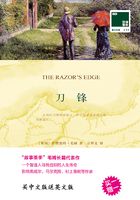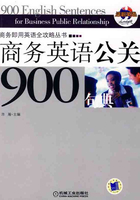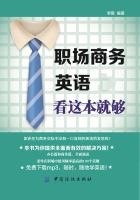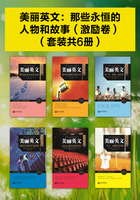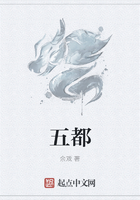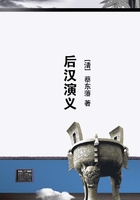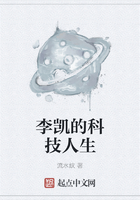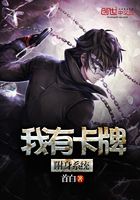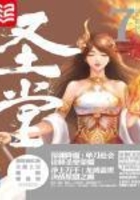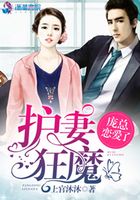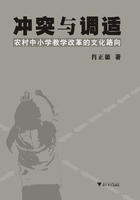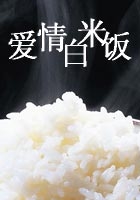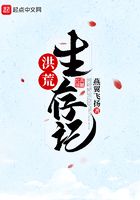Warm and Sensitive Themes
BEFORE CONTINUING to progress with this story, let's examine Ba Jin's third letter to Daili. We can know it is the third letter from the month and day, which were recorded, but there was still no year. The letter was on two pages of vertically lined paper; on the left side was printed the words "Kaiming B20×20" . It was obviously the stationery of Kaiming Bookstore. The quality of the paper was excellent, and there was almost no damage or loss of text.
As in the previous letter, Ba Jin had omitted an opening line, beginning to write immediately:
August 31.
I should ask your forgiveness. I received two of your letters, but it's taken me this long to reply, "Do you blame me for being behind with things?"
You sent me money again; I'm going to use it to buy a book for you. You said, "Take the money and give it to people who don't have anything to eat," I'm grateful for the goodness of your heart. Actually, I often send money to people, because by myself I can't use that much, and there are so many people who could use the money. However, I can't receive your money without reason: I suspect you also need money to buy books to read. Afterwards I'll find the right time to buy some books and send them to you. A volume of A Decade was sent to me by the bookshop, I have two or three volumes, so I've sent you a volume.
School is back; you wrote that you suspect you're going to become busier. I'm still busy with various things, and also with writing some essays. The weather is not good: people can get sick easily. The weather has gradually gotten colder over the past two days, and I need to put more energy into writing. I'd like to finish Spring early, and leave Shanghai and go travelling elsewhere, to be able to see more of society and experience more of life.
Zola's novels are well-written, but unfortunately there is yet to be a translation in China. I have seen many of his books, but outside of one or two works, there are many I almost don't dare to read. What did you think of his shorter works? Do you have time to tell me a little about what your life is like?
I sent you a copy of Destruction, because this is my most recently edited work, and it's slightly different from the previous version. I've additionally sent you Love: a Trilogy—I want you to read the preface. I sent you a copy of Memory as well, which can be treated as my autobiography.
Wishing you well,
Jin
To continue our analysis, it must have already been 1936 by the time this letter was written. We can know this because of the sentence "I'd like to finish Spring early" . As previously described, the manu of Spring was completed in spring 1938, and published in April. So we know that this letter could not have been sent in August of 1938. Was there the possibility that it could have been written on August 31, 1937?The probability is very small. One reason concerns a further historical inference that can be drawn from the following letters; the second is that in 1937 the influence of the pressing events that shook Shanghai is not apparent in Ba Jin's letters. On August 13, 1937, invading Japanese forces attacked Shanghai, and Shanghai residents were faced with the task of protecting their homes and country, and rapidly forming the movement to save themselves. On August 16, Ba Jin enthusiastically wrote "Some Thoughts" , which was followed by the publication of "Freedom is Crying in the Darkness" , "For the Benefit of the Deceased" , "The Anthem of Shanghai's Advance" and other heroic verses, which were paeans to the spirit of Shang-hai's troops in their battle with the enemy. They denounced the atrocities of the invaders, calling for the people to rise up against the Japanese, and to "spill our last drop of blood on the Chinese plains" . He firmly believed that China would not be defeated, stepping forward bravely, "For the brave soldiers and officers in front of me, the rightfully enraged people behind me, I'll exert myself and blunt my pencil, and let our cries boost your morale." On August 22, Ba Jin and Jin Yi's newly commandeered Wenji Company; Literature and Knowledge Company headed by Wang Tongzhao; the Chinese Stream Company headed by Li Liewen, and Literature in Translation, edited by Huang Yuan, combined as asingle body to establish the Cries literary journal, which published two editions, before being renamed Beacon from the third edition onwards. This was published on September 5, causing many fellow sufferers to take up the sword and throw themselves into the war of resistance. Thus it can be said, on August 31, 1937, Ba Jin was writing and urgently compiling the first national journal of the anti-Japanese resistance in rage.
In connection with Beacon, Ba Jin had said, "These words are a cry for justice and a record written in blood" ; at almost the same time, Ba Jin assumed responsibility as editor of Salvation Times, with Guo Moruo as company director, Xia Yan as the head writer, and Ah Ying as chief editor. Therefore it can be said, Ba Jin could not have written those idle words to Daili on August 31 in those days of continuous artillery fire. He could not have, in a city raging with the fire of the war of resistance, have written "The weather is not good; people can get sick easily," and he could not have written elegantly that "The weather has gradually gotten colder over the past two days, and I need to put more energy into writing." At that point, Japanese bombers were already diving in the sky!
This letter could only have been written in 1936 before these events occurred, on August 31, 1936. A little investigation reveals that in August 1936, Ba Jin was experiencing the friction of the "one front, two slogans" of Shanghai's literary and artistic world. After the Left Wing Writers' League was dissolved in spring, in the summer of that year in June, the Chinese Writers' and Artists'Association established the slogan of "The Literature of National Defence" ; Lu Xun, Ba Jin and others did not participate, but in the same month praised and supported "The Literature of the People's Revolutionary War" in the The Chinese Literature and Art Workers'Manifesto. The two camps set out on different paths, the split deepened, and the conflict became public. In August, Xu Maoyong of the Left Wing Writers first wrote an article criticising Lu Xun, attacking Ba Jin, Hu Feng, Huang Yuan, Zheng Zhenduo and many others, and later, Ba Jin came under a barrage of insults by Dai Dunfu, Ling Xi, Cao Juren, Bai Xue and others. On August 5, while ill, Lu Xun wrote a famous long letter, "In Reply to Xu Maoyong AboutThe Problem of a Unified Anti-Japanese Front" , to strike back against his opponent and to speak in defence of Ba Jin and others. In August and September of that year, precisely when the debate between the two sides was at its highest level, Ba Jin also made a counter-attack. Facing such intense censure, Ba Jin was depressed, describing how he felt after reading Xu Maoyong's essays, "In the dusk when I return to my house, I don't feel any better. I haven't turned on a light, and the pavilion falls into darkness. I sit in front of my desk, foolishly facing the blue wall."
The letter that Ba Jin sent Daili was written on a depressing day such as that. To researchers of Ba Jin, there are also various other pieces of evidence that indicate this. To an innocent young woman far away in Shanxi in the North, Ba Jin's tone was calm and steady, not showing the slightest impatience, "I'm busy with various things, and also with writing some essays." He had no complaints with life, he was more concerned with others, "Do you have time to tell me a little about what your life is like?"
Interestingly, in the third letter that Ba Jin sent Daili, he solemnly used the honorific "nin" [6], which he uses in more than eight places in total. However, in the previous two letters, by contrast he had used "ni" , not using "nin" in a single place. I don't know what the reason for this is.
Here, we have no choice but to raise a warm and sensitive theme: in what year did Ba Jin meet his wife, Xiao Shan?The facts tell us that as a high school student in Shanghai, Xiao Shan requested to meet with Ba Jin in the same year that Zhao Daili from Shanxi sent a letter to him and they met in the same month that Ba Jin sent his third letter to Daili. Xiao Shan was originally called Chen Yunzhen. Having previously been expelled from school for participating in student movements, she had returned home to Ningbo in Zhejiang to live with her family for a while, before again returning to Shanghai and resuming schooling at the Patriotic Girls' School. Chen Danchen wrote in A Complete Biography of Ba Jin, "There was a female student named Chen Yunzhen, who in 1936 began a correspondence by letter with Ba Jin. In that year, she was nineteen, and an ardent reader of Ba Jin's works." As a youth, Ba Jin had grown up in places such as Chengdu in Sichuan, but his ancestral hometown was in fact Jiaxing in Zhejiang, so in all probability, it would have been very easy for him to connect with Xiaoshan, who came from the same town. Xiao Shan was two years older than Zhao Daili, and she was enthusiastic and sincere. In August 1936, she had written another letter to Ba Jin, also attaching a photograph, so that they would be able to recognise each other. She invited Ba Jin to No. 219, Nanjing East Road-thus beginning their long love and courtship with fresh Cantonese cuisine. Chen Danchen believes that at this time, Ba Jin began "to treat individual love and marriage as outside of the undertakings of revolution and sacrifice of his early years, and his philosophy of single life gradually weakened to a position of pure and fiercely burning love" .
This third letter was written on precisely August 31, 1936, namely, the time that Ba Jin and Xiao Shan met for the first time. We have no way of guessing whether or not, if Zhao Daili was also in Shanghai and had not lived in far away Shanxi, whether she might have also contributed to the "gradual weakening" of Ba Jin's commitment to single life.
Of course, this conjecture has no real-life value. At that time, many female readers enthusiastically sent letters to Ba Jin, and they were all young like Daili. According to records, at that time Ba Jin seldom set foot in the North, he had only been to Beiping[7], and he had never been to inaccessible and ancient Shanxi.
However, we can know from these letters that Ba Jin had utmost respect for Daili.He hoped that this girl from the North could understand herself better and he anticipated an opportunity for them to be able to communicate more deeply and continue their acquaintance.
Ba Jin sent Daili a new book, Memory, saying that this book "can be treated as my autobiography" . As would be known to readers familiar with Ba Jin's works, Memory is a collection of meandering essays full of Ba Jin's own memories, which was published as a book in 1936 by Culture Life Company.
The letter made reference to Destruction, which had already been edited. This famous work was written entirely during Ba Jin's time in a small town to the east of Paris, which researchers have termed "The City of Sand" . Destruction was completed early in the autumn of 1928. At that time, Ba Jin sent the manu back to Shanghai in China, originally entrusting it to his friend Suo Fei to publish at Ba Jin's own expense at Kaiming Bookstore. However, Suo Fei recommended that Ba Jin give it to the editor of Novel Monthly, Ye Shengtao. Ye Shengtao enjoyed and selected Destruction for the first edition of the coming year, and, after being miraculously published as a serial in Novel Monthly, it instantly created a great sensation. In October of that year, it was published as a single-volume edition by Kaiming Bookstore. The book is full of a brave revolutionary spirit of sacrifice, but finishes with a tragic atmosphere of defeat. The reference in the letter to "my most recently edited work" obviously refers to the newly edited Destruction.
The references in the letter to A Decade which "The bookstore sent me" , which appears to have been published by Kaiming Bookstore, left me at a loss. Almost no one in my circle of friends had heard of it, I didn't even know which scholar to ask about it. A search on the internet yielded no results. In the few months that followed, I had a drink with an old friend, Huang Bintang from China Youth Publishing Company, and I unintentionally mentioned this puzzle. Bintang raised his glass to me, and surprised me by saying, "I know of this book" . Bintang is normally cautious with his words, but after some alcohol, he spoke eloquently. It surprised me that his detailed knowledge of the subject had caused everyone to cease their chatter as he pulled out a fine statement about the publishing world:
Kaiming Bookstore was the previous incarnation of China Youth Publishing Company.
As early as 1926, that great man of the past, Ye Shengtao, estab-lished Kaiming Bookstore in Shanghai. After undergoing many struggles, by 1936, Kaiming Bookstore's reputation had spread, which helped to propel Shanghai as a cultural center. Through painstaking effort, the store became well established and it attracted many outstanding authors. After ten years had passed, the results were outstanding and the bookstore decided to celebrate in a special style. Therefore, with Xia Mianzun as chief editor, outstanding contemporary authors were each asked to present a quality novel, the results of which were compiled and published as a thank you to their readers—this was A Decade. Within the space of a short time, one-by-one, the invited authors put pen to paper so that Kaiming Bookstore could offer a high quality anniversary book. All were famous, with towering literary reputations. They were: Lu Yan, Lao She, Zhang Tianyi, Jin Yi, Wang Tongzhao, Wu Zuxiang, Shi Zhecun, Li Jianwu, Ding Ling, Ling Shuhua, Xiao Qian, Xiao Jun, JianXian'ai, ZhengBoqi, Ai Wu, Sha Ting, Lu Fen, Shen Congwen, Zhou Wen, Mao Dun, Duanmu Hongliang, Jiang Muliang and others. Ba Jin participated by contributing a short story called "Star" . A Decade was compiled in a commemorative spirit, and displayed an impressive line up of the influential literary groups of that generation. However, a number of popular authors handed in their manus late, and it is said that these were compiled into A Decade:The Sequel. In summary, the book A Decade was no small matter, and I was surprised that I hadn't been aware of it.
After 1949, Kaiming Bookstore relocated to Beijing.
The events of the past faded away quickly and violently like storms blown up by the wind, and the revolution was successful. In 1953, the Communist Party implemented a system of public-private partnership in both urban and rural areas, which was a significant step of a Communist country towards implementing public ownership—there was no means to oppose the great changes which were underway. With the sound of firecrackers in the air, Kaimingdid not re-open—history is very unkind. On April 12, 1953, Kaiming Bookstore and bookstores under the affiliation of the Communist Youth League merged. The word "China" was added to their title, and they were designated as "China Youth Publishing Company" . At the same time, the first board of directors was established. The new director, Hu Yaobang, attracted the attention of the literary and publishing circles. In the future, he would become the General Secretary of the Chinese Communist Party Committee (as a person involved in public-private partnership, maybe it would be somewhat inappropriate to call him "Comrade Hu" ).
Bintang downed another cup, and I hung off his every word.
After China Youth Publishing Company was established, it continued on to publish Red Cliff,The Red Sun, Song of the Red Flag, as well as The History of an Undertaking and many other Communist classics also called "The Three Reds and An Undertaking" , which were to become popular all over China. Unexpectedly, in 1966 during the violent "sweeping" of the Cultural Revolution, China Youth Publishing Company was immediately destroyed, and all previous publications without exception were labelled "poisonous weeds" . Neither the old editor of the Kaiming Company, nor the new editors of the seventeen years that followed, dared to continue. The entire company was forced to close down, and most of its members were sent to the May 7 Cadre School, where they completed forced agricultural labour. By the middle of the Cultural Revolution, because of Mao's support for Li Zicheng, written by Yao Xueyin, the China Youth Publishing Company basked in reflected glory, and was finally able to resume business.
Those who had suffered would only have to suffer for another ten more years.
However, the story does not end here. Ye Shengtao's son,Ye Zhishan, having endured calamities, still worked at China Youth Publishing Company as a copy editor. At that time in the Chinese publishing world, the most urgent task for all writers and artists who had been labelled as "poisonous weeds" was to be able to republish their works. The gems of Chinese and foreign culture, ancient and modern, cannot be destroyed by a mad and violent revolution. We thirst for excellence! Readers flocked to and rushed to buy "new books" , and for a time, everyone read, with books never leaving their hands. They were like wanderers in the desert throwing themselves at an oasis. In that situation, a number of contemporary authors had to build their reputation once again—they had been wrongly accused. Therefore, Ye Zhishan advocated for the reprinting of Kaiming's A Decade, and in November 1984 this outstanding work by contemporary authors was compiled as The Reprinted Sequel. In the next year, this book would again come to light as an important historical testimony to the company. These days, on Bintang's bookshelf, there's still a reprint of A Decade by the China Youth Publishing Company. The copy of A Decade which Ba Jin gave to Daili was probably one of the two or three copies given to the author by Kaiming bookstore. This would verify the year as 1936.
Time passes quickly, and another twenty more years passed, with this book still in existence.
Ye Zhishan afterwards became China Youth Publishing Company's first director and chief editor, holding both positions simultaneously. Could he be modern writer Ye Zhaoyan's uncle?
Thanks to my conversation with Bintang, finding out about ADecade was effortless.
How could our historical and literary traditions rupture? It was only necessary to experience the Cultural Revolution, and for-madmen to be very mad.
Bintang also said that at that time in society, it could readily be observed that the publishers and editors of the Nationalist era were meticulous, talented and realistic; they were exceptionally thorough in their work. They were all gems in the crown of the Chinese literature and publishing world. However, regretfully, they encountered misfortune, endured half a lifetime of suffering, and never received the admiration and respect to which they should have been entitled. This prompted me to wonder: if some of those living treasures are still alive today, will they ever receive due admiration and respect?
Which reminds us, this letter by Ba Jin was written on Kaiming Bookstore paper, it was lined vertically with small squares, showing some refinement.
From the letter it can be seen that Daili "had sent money again" . She further instructed Ba Jin to "Take the money and give it to people who don't have anything to eat" , with regard to which Ba Jin wrote, "Actually, I often send money to people" . Idealists view their own personal wealth lightly, and Ba Jin further explained, "because by myself I can't use that much, and there are so many people who could use the money" . Something else we can guess from this was that Daili's family was quite rich. What type of family was it?
The third letter that Ba Jin sent Daili was like this.

